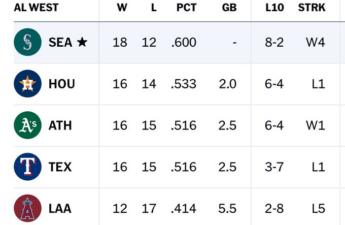Before I even begin this post, I feel the need to disclaim it in some way. I expect this to be controversial and difficult and that some people might get offended. Please don’t get offended. I’m exploring an idea here, something real that I feel. Don’t jump to conclusions or rush to judgment or do all those other things that people often do about emotionally charged issues. And keep in mind that you read this voluntarily.
With that out of the way, I have something to say: I am, overall, saddened by the tremendous outpouring of attention being given to Haiti.
It’s not that I’m a fan of earthquakes or human suffering or that I like chaos or people dying in the streets. Quite the opposite of all that is true. I want nothing more for this world and its people than for everyone to be free from violence, have access to life-sustaining items (food, clothing shelter), be equal, and find meaning in their lives. Obviously this earthquake impedes all those things and as such, I am against it.
Nor am I against compassion. Almost everyone in America has gone nuts over this thing, especially in my generation, plastering Facebook and (presumably – I don’t Twitter) Twitter and all manner of social media with widespread appeals for Haiti. Donate donate donate. Get involved. Show your support. It may be the first thing that’s actually eclipsed the troops in terms of universal sentiment in this country. Everybody – everybody – loves and/or feels bad for Haiti. And I agree. I also feel bad for Haiti, though perhaps not as much or in the same way as others, for reasons I will soon explain.
Indeed, one could make the argument (and I expect it) that such an overwhelming demonstration of heartfelt mourning and sympathy is one of the best things to come out of America in years. It demonstrates that we can overcome proclivities to racism, imperialism, and just general indifference to come out of the woodwork to show our support and fork over our cash. That Americans are fundamentally selfless, volunteerist, the most generous people on Earth showing up to once again offer their benevolence to a wounded world less fortunate than ourselves. And there’s a grain of truth to all of this, to be sure. I guess I’d have even more to complain about if this earthquake had happened and no one noticed at all.
The problem, though, is that the suffering of the people of Haiti is not particularly special. It’s not unique. It’s not all that different from the ongoing daily suffering of hundreds of millions of people worldwide. What it is, if not unique, is sudden. And close.
The closeness argument is a little weak, I’ll grant in advance, because there was admittedly a pretty big outpouring of donations and support for the tsunami in southeast Asia a few years back, although Facebook and Twitter weren’t really revved up then. Although there are devastating earthquakes in rural Iran all the time that don’t exactly get America’s juices flowing. But sure, Iran is hardly as poor as Haiti, so maybe it’s fair.
But the suddenness is what I want to focus on. Most of why people in America feel compassion for what happened is because people were going on living their (admittedly pretty miserable) lives one day, and then suddenly the world caved in and everything was much much worse. And unlike a hurricane with advance notice and evacuations, unlike anything predictable, there was nothing anyone could do to get out of the way. They were just there and then the next minute, everything fell over.
There is something very particular in the American psyche that I believe this kind of event triggers. Not only do people subconsciously link it to something like 9/11 in their mind – the day they remember the world falling over – but it’s something that can happen to literally anyone. It’s something that not the remotest Republican (okay, well maybe there are some people who believe that earthquakes are God’s wrathful judgment, but let’s leave out the Pat Robertsons of the world) could say was the fault of the people left victim by it. It is utterly blameless, utterly unavoidable. And this makes our compassion go crazy.
Great, right? We should have compassion for people whose world falls over through no fault of their own, who could have done nothing to predict or avoid the calamity. Right?
Yes, absolutely. But there’s also something insidious about this particular kind of compassion, especially when contrasted with its glaring absence in other equally warranted circumstances. Because it implies a particular worldview about dessert and outcomes and how much control we perceive to have over our life conditions. Very few people were spamming Facebook and Twitter with calls for aid to Haiti the day before the earthquake. Even though Haiti is the poorest country in the Hemisphere, is extremely close to the US, was even the site of US military involvement not so long ago. Haiti features 80% poverty and 50% illiteracy. Some estimates say a quarter of a million children have functionally been sold into slavery to combat the poverty of their families. By any measure, Haiti was in nearly as bad straits before the earthquake as after.
Okay, sure, this is perhaps a slight exaggeration. And I understand the argument that this kind of tragedy striking a place already in such dire circumstances is what makes this situation special. But the magnitude of the difference between conditions there before and after the earthquake is dwarfed by the magnitude of the difference in American perceptions before and after.
And I think it’s because we all fear earthquakes and think they could happen to us, but we don’t fear becoming an impoverished nation. Even after the housing crisis and the stock market plunge, I couldn’t find a single person who thought the US would lose control of its top-drawer economy to the point where poverty would be considered a widespread issue. And even though many Americans made great strides in the last 18 months in understanding they had less control over their economic circumstances than they thought before, almost no one was to the point of feeling like their standing was really legitimately in jeopardy, let alone the country’s.
Earthquakes don’t discriminate. They aren’t attached in people’s minds to moral worth or work ethic or financial holdings. They just hit and knock things over. Although, of course, the reason an earthquake like this kills so many people in Haiti and not in, say, San Francisco is because of all the disproportionate wealth accumulated in the latter and not the former. But people aren’t calling for aid to all the other poor countries where an earthquake might hit, anticipating that this could save millions of lives yet untaken. They’re calling for aid as a mental insurance policy, because they fear natural disasters themselves and want someone else to help them if they’re in that situation.
But because we get only one life each on this planet, it’s much harder to see that one could’ve been in the situation of being born in Somalia or Bangladesh, let alone Iraq or Afghanistan. Because one wasn’t born there, so it seems unrelatable. I haven’t even touched the issue of relating to the earthquake-like devastation that the US has itself caused in these countries with direct military action, let alone the de facto devastation of exporting imperialistic corporate kleptocracy. Yes, people talk about all these things. But in isolated pockets, as quiet outliers. Not in the kind of mainstream full-force universality currently being bolstered for Haiti.
And there’s the argument that this will set the precedent, that this kind of compassion will get a whole bunch of people eventually looking at the causes, the poverty, and applying these arguments to other countries. No argument – the compassionate outpouring will ultimately do a great deal of good for America’s understanding of others. But when it’s offered only (or vastly disproportionately) to victims of natural disasters and not of poverty or human violence, I think it also does a lot of harm. It reinforces our conceit that we’re above most of the human concerns, that we’ve somehow evolved beyond them or overcome them merely by greedily accumulating wealth and entrenching poverty elsewhere. It blinds us to the fact that we are largely creating the problem by being immune to it.
Not only are we not immune, but our immunity (to the extent that it exists) is an accident. The accident of birth. Which is every bit as accidental as an earthquake. An earthquake can hit anywhere, but you could have been born anywhere. And when people start generating compassion for everyone born in a bad situation, for everyone whose devastation is no less severe but was wrought by systems of violence and impoverishment, then we’ll really be getting somewhere.


